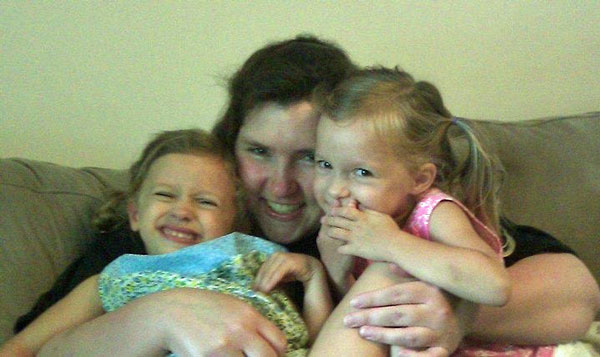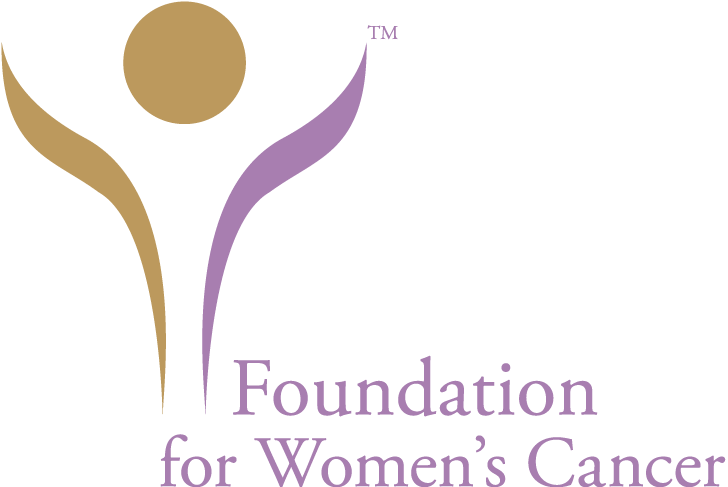Learning What it Means to be a Survivor

Endometrial cancer survivor Becky Joosten with her young nieces.
Becky Joosten was 35-years old when she was diagnosed with endometrial cancer in 2009. The physical, mental, and emotional hurdles that followed granted her a unique perspective of what it means to be a survivor, and eventual self-affirmation helped her feel deserving of the label.
She made a visit to her doctor after she noticed abnormal uterine bleeding and constant pelvic pain. Because these symptoms were initially attributed to hyperplasia, she received a robotic partial hysterectomy and a frozen section test. The frozen section test involved removing a portion of tissue to be examined for cancerous cells.
Becky’s test results came back negative. However, she received a call from her pathologist: they found a mass buried deep in her myometrium, the smooth muscle tissue of her uterus. She then went through a second robotic salpingo-oophorectomy with lymph resection followed by 16 treatments of carboplatin and taxol.
After two surgeries and sixth months of chemotherapy, Becky was cancer-free. Though she won her battle against cancer, Becky struggled with the implications of the procedures she received as a woman in her child-bearing years. Losing the ability to give birth took a significant emotional toll on Becky, especially as her cancer diagnosis was partially accredited to her weight, a risk factor she was unaware of.
Becky experienced the feeling of survivor’s guilt, a feeling that amplified when she lost a dear friend to ovarian cancer. “I think I would go through cancer a thousand times over than have someone I care for be diagnosed,” she said. “Unfortunately, my friend did not survive, and I had to grapple with why she, who was a wife and mother, didn’t survive and I did.”
During her survivorship process, Becky has come to know women with similar journeys through online uterine cancer support groups. She found that the online groups provided an experience unique from sharing with family and friends. She said, “it helped to see what I was feeling was normal.”
Becky remarks the importance of recognizing an emotional experience as valid, regardless of the stage of cancer experienced. “Allow yourself to feel whatever comes,” she advised. “It’s cliché, but it’s O.K. to not be O.K. – we are all walking this life the best we can.” Becky also encourages patients and survivors not to dwell on the cause of their cancer, or whether they did anything to cause it, as it can be counterproductive to their journey.
Now 44-years old, Becky has an optimistic disposition when looking forward. “If we band together as survivors of reproductive cancer, educate others, and have love and kindness, we can help future generations with prevention, or greater support and care during their own diagnosis,” she said. “I’m grateful for my life and that I’m a survivor, a title that took a long time to feel worthy of.”
Survivorship is a unique, individualized process. The Society of Gynecologic Oncology (SGO) and Foundation for Women’s Cancer (FWC) offer convenient resources, such as a Survivorship Toolkit, to help manage the details of your experience with cancer.
